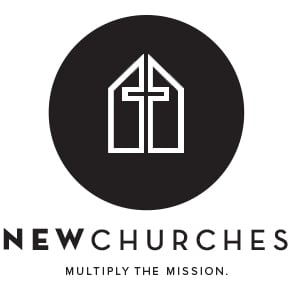By: New Churches
Home > Blog > A New Normal
A New Normal
By Ed Stetzer

As states have begun varied and nuanced approaches to reopening businesses, parks, and more, we find ourselves asking more and more “How do we move forward?” I’m concerned about life after the pandemic, but my concern is in a direction that may surprise you.
Many say they are concerned that after the pandemic the church will never be the same again. Some wonder, for instance, if the day of the large church is over. The thing that resonates with me is the statement that the church will “never be the same again.”
I’m more concerned the church will be the same again. Let me explain. For 2,000 years, we’ve had epidemics or pandemics. What’s happened in and during and after the pandemics hasn’t drastically changed the structure of church for most of the previous 2,000 years.
We built cathedrals and gathered in them. Then the Black Death came. After the Black Death, we gathered in cathedrals again. Don’t assume the church was unaware that gathering together accelerated the spread of sickness. They might not have known about flattening the curve, but they knew that gathering together exposed them to more illness.
I’m less concerned that the church will be forever changed and more concerned that we will snap right back into the status quo. Why? Because the best predictor of future behavior is the immediate past.
History doesn’t always repeat itself, but it tends to rhyme. We must not go back to normal. Instead, we must take the best of what we are seeing now and continue those things. Let me share three things that I hope we will keep moving forward.
First, that God’s people would be deployed.
God’s people are deployed at a higher level, a more faithful level, and a more fruitful level than before this pandemic began. We’ve seen small group leaders functioning like pastors or lay pastors. We’ve seen ministry leaders engaged in new ways of doing things. We’ve seen people caring for one another at higher levels. We’ve seen people making phone lists and calling one another, praying for one another, and then serving the poor and the marginalized in their community.
Wouldn’t it be amazing if we didn’t go back to consumer-driven Christianity where people line up like customers outside of Costco? Wouldn’t it be nice if we didn’t come in like consumers of religious goods and services but instead continued to see ourselves as the co-laborers in the gospel?
Some of those people who you’ve seen step up might meet those qualifications in 1 Timothy 3. You might think about how to raise them up as pastors and leaders. But how do we keep deploying people? We need to remind people that, in God’s good plan, he wants all of his people to join him on mission.
First Peter 4:10 says, “As each one has received a special gift, use it to serve one another as good stewards of the manifold grace of God.” May this be true before, during and, especially, after the pandemic.
Second, that we would keep worship central but not at the center.
God’s gathered worship is central, but it’s not the center of church life. Conversely, the church is not the center of God’s plan in the world, but it is central to God’s plan in the world. Ephesians 3:10 says, “God has chosen the church to make known his manifold wisdom in the world.” God has chosen the church.
The church has not been able to gather in ways that we enjoy and love. Not only do we value that, but gathering is a mark of a biblical church. However, the lack of gathering has actually helped us to emphasize other areas in the life of the church.
I often use the example of chess. I played competitive chess in high school. Our chess club teacher taught us not to rely on the queen. He had us remove the queen, leaving two chess players with no queen on either side. When you do this, you are forced to use all the pieces: the pawns, the rooks, the knights, and the bishops.
The gathered worship of God is not the center, though it is important. Indeed, it’s one of the marks of the biblical church that was taken from us, which is why it was so hard.
But look at how the people are deployed. My hope is that God’s worship would be central to our lives but not but not the center of all we do.
Third, that we would see the heart of God more clearly.
I’ve heard a lot more people talk about the poor, the hurting, and the marginalized. There’s a fresh perspective on the “least of these.”
This crisis has focused us on the impact this has had on marginalized people. We’ve seen incarcerated persons who can’t social distance. We’ve seen the homeless.
We’ve seen the devastation in nursing homes, the elderly, the sick, and people with compromised immune systems. And, we’ve seen heroes like those who helped and served the poor, and stories of first responders and healthcare workers sacrificing greatly.
As we look forward, how can we continue on the positive movements and focus that we have seen emerge? Returning to normal after such a historic moment would be nothing short of missing one of the greatest opportunities of our lifetime. We’ve been handed the chance to be better and do better. Let us go and do it.
Source: A New Normal
